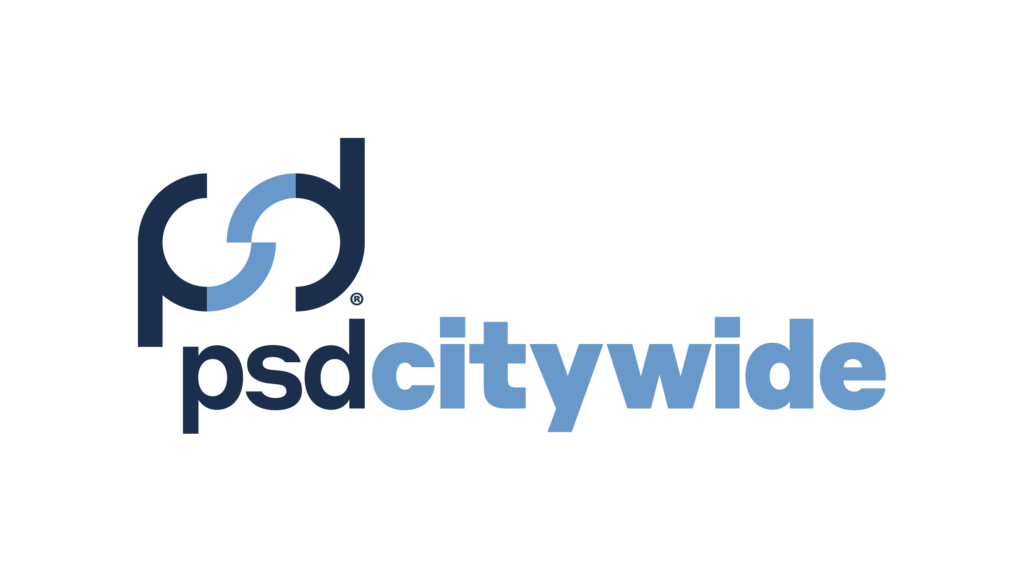By Diane Kalen-Sukra, MA, CMC
The life of Oak Ridge, Tennessee’s city manager Dr. Mark S. Watson can be described as a Quixotic quest for practical wisdom—a life-long effort to bring philosophy down from the heavens and into the public square, where it has greatest positive impact for the common good, for justice and for human flourishing.
In Watson’s youth he studied the literature of the ancient Greeks, Romans as well as the philosophers of the Middle Ages and moderns. This interest bloomed into a passion for rhetoric and English poetry. How better to learn about civic resilience than through the epic poem Paradise Lost, written during a time of great social and political upheaval, by the great 17th-century English poet, intellectual and civil servant John Milton?
Pursuing a Master’s degree in Public Administration was the next step in Watson’s now 43-year career in the municipal sector, which includes serving as city manager in seven different cities ranging in size from 5,000 to 100,000 spread across Texas, Montana, Arizona and now Tennessee. A trail of collaborative accomplishments and accolades follow him, from revitalized cities to the construction of historic landmarks to a Lifetime Achievement Award in City Management from his alma mater.
Yet Watson didn’t stop there. A year and a half ago, the City of Oak Ridge proudly announced that their city manager had received his Doctorate in Philosophy from the University of Tennessee after successfully defending his dissertation titled City Managers, Mayors and Council members: Local Stability in Tennessee.
Dr. Watson is not alone. We are seeing the rise of a new kind of city manager, the Philosopher-Chief Administrative Officer, bucking a trend that spans decades which placed more value in the municipal sector on technical and operational skills over the types of wisdom and discernment in civic leadership imparted by a liberal arts education. In contrast, the ancient philosophers valued wisdom over knowledge (techne), recognizing that knowledge applied without wisdom is folly. Philosophers are, by definition, lovers (philos) of wisdom (sophia).
In a popular CBC Opinion piece published last year titled Education without Liberal Arts is a Threat to Humanity, University of British Columbia President Santa J. Ono argues that leaders need this education “to arrive at a moral foundation that will lead to sustainable peace and progress.” In this way, they “will have that moral compass. They will make the right decision, not for themselves…but what’s best for humanity.”
The Philosopher-Chief Administrative Officers featured in this piece answer this call.
Why Philosophy Makes Municipal Chief Administrative Officers Resilient
Dr. Watson, who considers himself a change agent and innovator, says a background in philosophy plays an important role in grounding the present-day city manager. He believes it builds versatility and “adaptability as well as an understanding of self” that girds the city manager in the varied, diverse, and complex situations they are called to navigate.
“Regardless of the intensity of the storm, ‘the city manager profession requires strong adherence to ethics. If the community or governing bodies can’t trust the manager, there will be no success.” Trust is, after all, the cornerstone of effective community building.”
Mark Tatchell, Chief Administrative Officer of the Village of Tahsis in British Columbia, shares this view that philosophy “instills an ethical grounding in decision-making”. He further emphasizes its value in cultivating “a desire to inquire deeply, an appreciation of diverse views and a resistance to dogma.”
Tatchell is a lifelong civil servant with both undergraduate and graduate degrees in Philosophy. Prior to his role as municipal Chief Administrative Officer, he served as the Provincial Deputy Auditor for Local Government.
At a time when there is increasing strain on political relationships between elected officials, staff and the public, Tatchell makes the point that philosophy “teaches the foundational principles of democracy” which has “particular relevance in addressing the abiding tension between the role of elected officials and those of professional staff” and in fostering constructive civic engagement.
Regardless of the intensity of the storm, ‘the city manager profession requires strong adherence to ethics. If the community or governing bodies can’t trust the manager, there will be no success.’
Meighan Wark, Chief Administrative Officer of Huron County in Ontario, who only recently departed her PhD studies to meet her civic duties in her demanding role as Chief Administrative Officer, champions the many ways the study of philosophy benefits decision-making.
“Not only does it bring forth the opportunity to look at problems within a much broader context,” she says, “it also challenges the individual to think from a systems perspective. Specifically, it makes you question the nature of the problem – focus on the root cause as opposed to what may be a superficial symptom.”
During moments of tremendous challenge, Wark asks, “is there anything more soothing than Cicero to contemplate the nature of public service?” She is inspired and encouraged by the words of this Roman orator, statesman and scholar, that speak to us through the ages:
“But it takes a brave and resolute spirit not to be disconcerted in times of difficulty or ruffled and thrown off one’s feet, as the saying is, but to keep one’s presence of mind and one’s self-possession and not to swerve from the path of reason.”
Milo MacDonald, Chief Administrative Officer of the City of Fort St. John, British Columbia emphasizes that “ethical questions and moral problems are daily fodder for the Chief Administrative Officer role and having a set of principles that you can defend with conviction comes from having contemplated those values through a philosophical lens.”
He didn’t get his philosophical lens in a university, rather it arose from a twenty-year career in policing where he persistently sought answers to age-old philosophical questions such as, “What is justice? Can a legal system deliver real justice?” as well as the nature of crime, punishment, restoration, forgiveness, atonement, redemption and community.
MacDonald found inspiration and strength in the ancient Greek and Roman philosophy of Stoicism which he says resonated with him “because it offered a way to put the suffering, the setbacks, toil and sad stories into perspective and allowed me to rationalize my optimism.”
And it just so happens that the sense of meaning and higher purpose, ethical grounding, adaptability, introspection, critical thinking, optimism and epistemic humility that comes from philosophical pursuits are the very building blocks of resilient civic leadership.
PHILOSOPHY IN ACTION AT CITY HALL
Philosophy, when applied, show us just how much values and ideas matter. In a world obsessed with individualism and greed, even Machiavellian beliefs have found their way into City Halls and the public square, undermining principles of good governance, civic trust, social well-being and democracy.
A student of philosophy, however, would know that better, more sustainable, and effective models of civic leadership exist. Rather than follow Machiavelli’s historically condemned advice to civic leaders to pursue “criminal virtues” (cruel and immoral deeds such as the ruthless elimination of political rivals through deception) and to seek power for power’s sake, there were other even more prominent Renaissance thinkers who understood the lasting damage to societies and civilizations of such short-sighted opportunism.
One such thinker was the Dutch philosopher Erasmus who wrote influential manuals to civic leaders that rooted civic action in values such as benevolence, honour and justice. “Power without goodness,” Erasmus wrote, “is unmitigated tyranny, and without wisdom it is destruction, not government.”
How many CAOs would benefit from the reminder of the Renaissance philosopher and statesman Sir Thomas More, that civic leaders ought to be servant leaders “just as a shepherd’s job, strictly speaking, is to feed his sheep, not himself”?
Fort St. John CAO Milo MacDonald has studied this leadership question and is “fascinated by the revelation of character in those who are given power and how they choose to use it.” In practice, he strives to lead through influence rather than authority. When asked to consider and implement a new organizational structure for the City he courageously identified places where operational goals had been prioritized over human values undermining trust, internal collaboration, organizational alignment, and effectiveness. The reorganization placed greater emphasis on safety, compassion, collaboration, teamwork, education and professional development. Early evidence shows far better outcomes for city programs and people.
Huron County CAO Meighan Wark launched “ongoing leadership sessions that discuss ethics, diversity and dialogue” and the adoption of Human Resources practices that encourage honest conversations and coaching authenticity with all staff. The County’s senior leaders have mantras that have been published and shared widely through the corporation and included in all reports to Council. “These mantras relate back to these basic philosophical principles,” says Wark, “such as asking themselves how projects and actions serve the greater good of the community.”
Tahsis Chief Administrative Officer Mark Tatchell helped Council, the community, and a forest company navigate a potentially explosive plan to log a valley bottom old growth forest in their community watershed. He saw his role as “helping Council understand the values that gave rise to their opinions and articulate those values to the forest company and the provincial government.”
The environmental values were developed through a Village sponsored comprehensive assessment of the vegetation and ecosystems, wildlife habitat and geomorphology of the watershed which identified concerns like marbled murrelet (a species at risk) habitat. This information was shared with the forest company along with a discussion regarding the company’s values in relation to community, e.g., did the company believe it had an obligation to take into consideration the community’s views when logging this watershed? And, if so, how did that obligation factor in decision-making?
Ultimately these conversations resulted in a letter of understanding between the company and the Village which formalized the company’s decision to set aside the watershed from logging. This outcome will be legally established in a series of Cabinet orders under provincial statutes.
Tatchell sums up his philosophical modus operandi in this way: “In the midst of these strongly felt issues and controversies, it can be tempting to become a political advocate for Mayor and Council. Philosophical training discourages polemics and opinion shouting. Rather, it encourages thoughtful reflection and analysis which is not the same as inaction. Careful thinking and analysis inform the right type of work to be done to achieve a values-based outcome. This starts with truly understanding the world as it is.”
These philosopher-Chief Administrative Officers embody the kind of leadership envisioned by Plato’s Socrates on the infamous Ship of State—the one he called the Navigator. He describes this “stargazing philosopher” as the one who keeps their eyes fixed on the sky to monitor “the times and seasons” as well as the “stars and winds” in order to be able to effectively plan the practical journey increasing our chances that we will arrive at our destination—a safe, inclusive and sustainable community for all; a place where justice reigns and the people flourish.
DIANE KALEN-SUKRA, MA, CMC is a author, speaker, educator, coach and certified culture change consultant with the Barrett Values Centre. Diane’s firm Kalen Consulting inspires and equips leaders to build resilient communities through good governance, asset management, servant leadership, compassionate culture, and civic education.
Subsidiary Kalen Civic Academy hosts Resilient Civic Leadership: Compassionate Integrity Training for Civic Leaders, a university certificate program through the Centre for Compassion, Integrity & Secular Ethics at Life University. This 10-session program shares ancient wisdom for modern city builders, backed by cutting-edge developments in the fields of neuroscience, psychology, trauma-informed care, peace and conflict studies, and contemplative science.
For more, join Diane on social media: LinkedIn | Twitter | Facebook | Instagram | Blog



